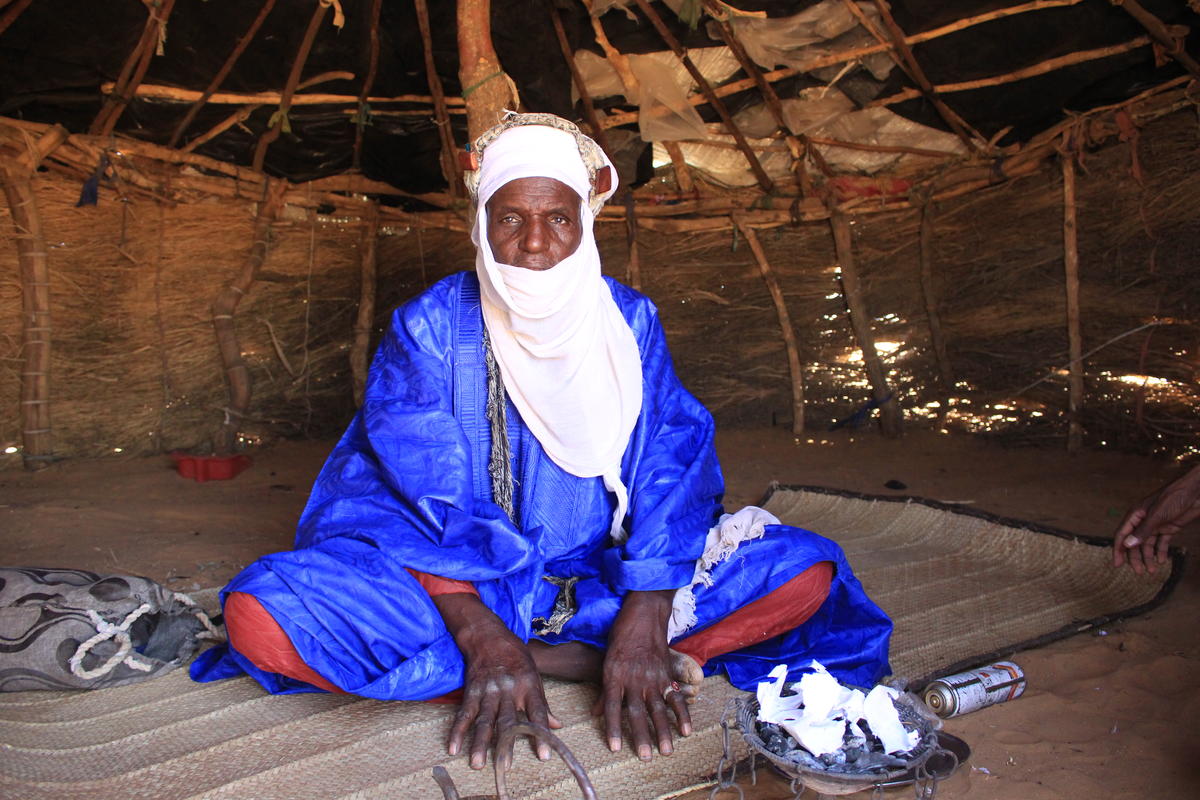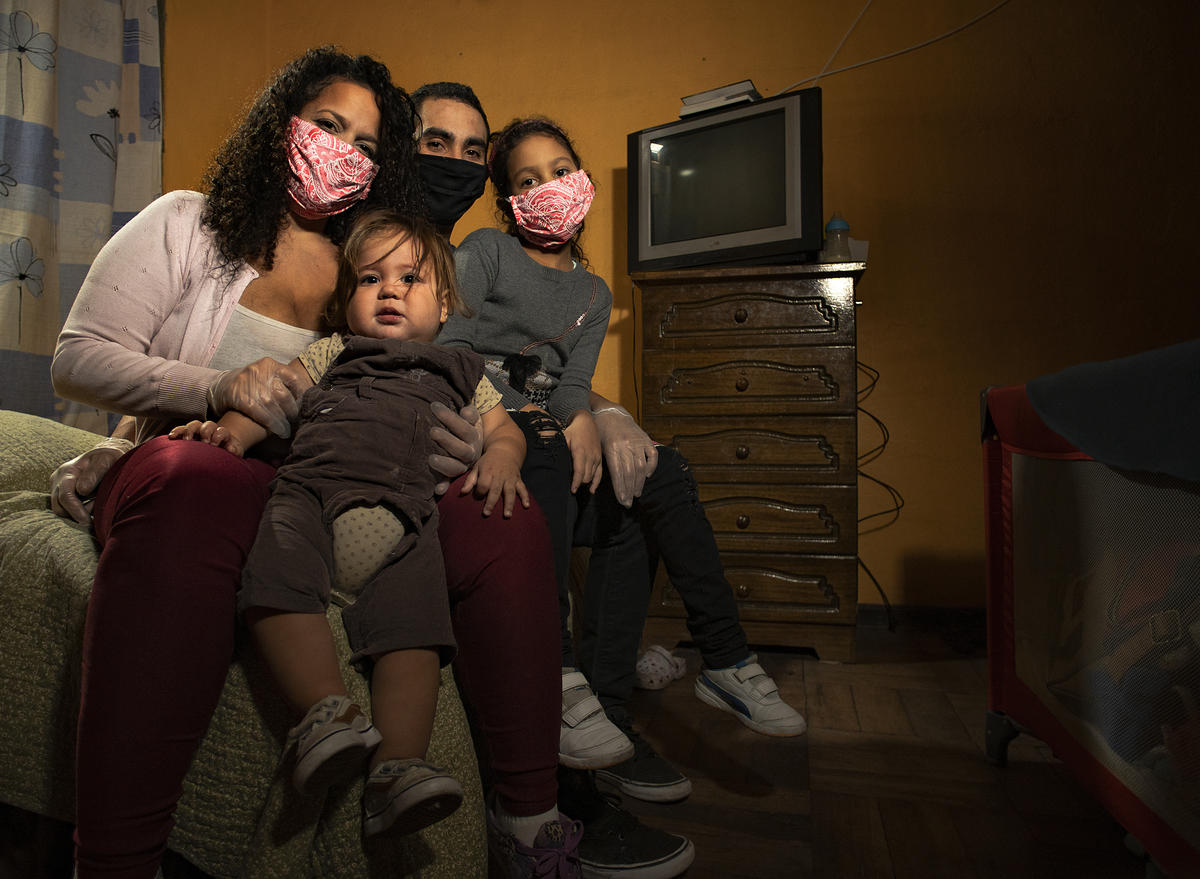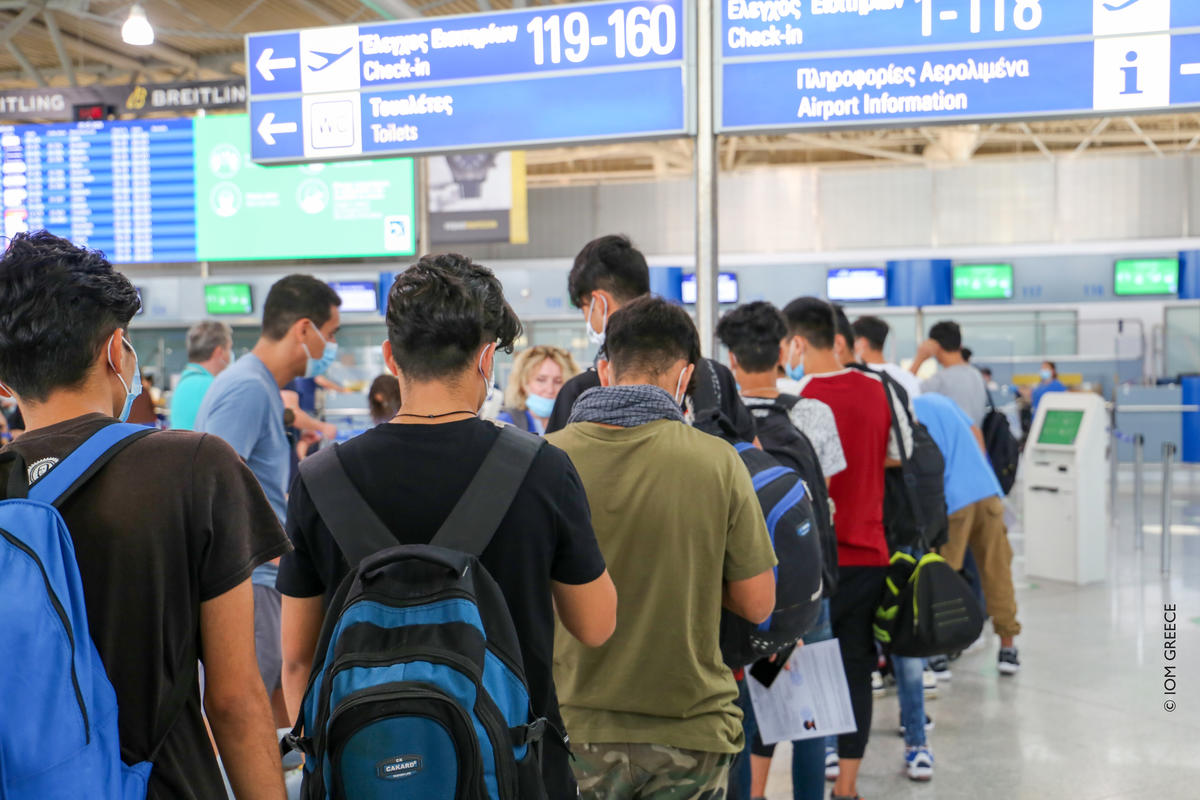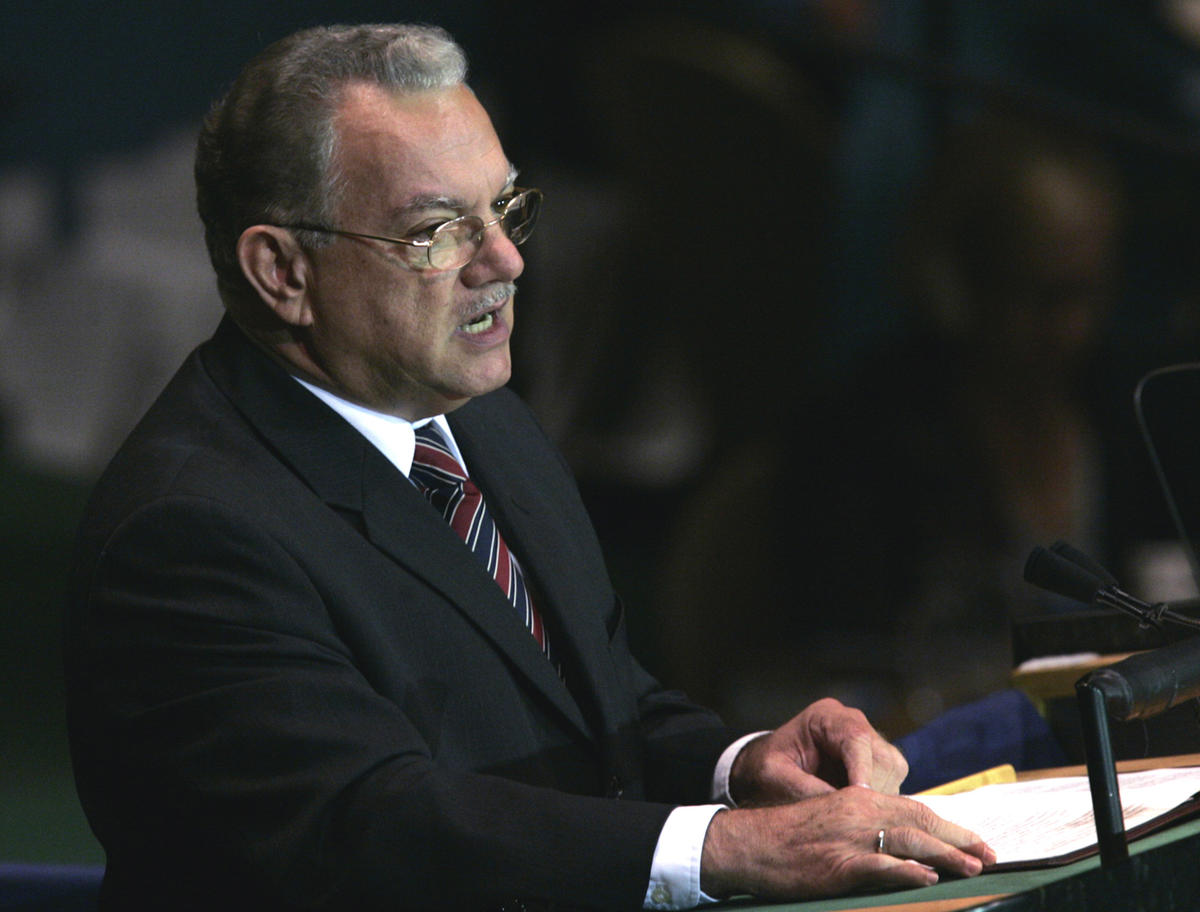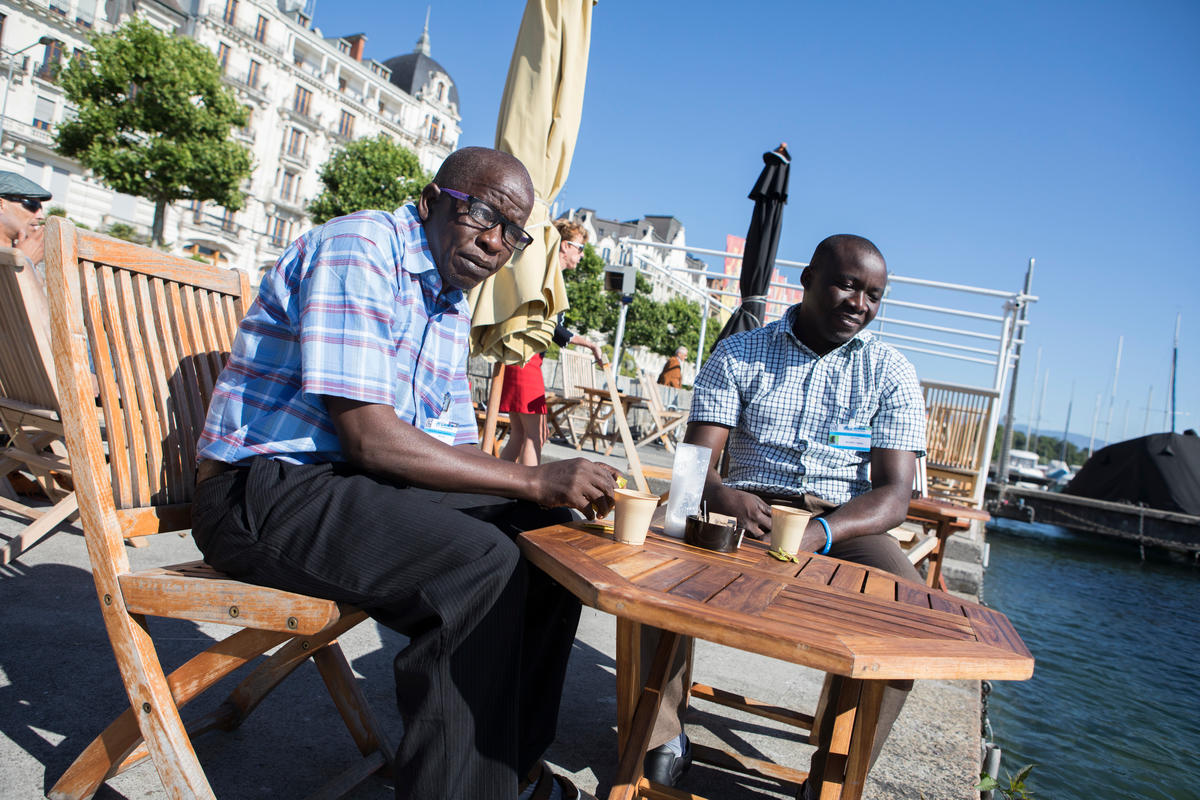Q&A: Plaudits and prizes for powerful migration movie
Q&A: Plaudits and prizes for powerful migration movie

MADRID, Spain, December 7 (UNHCR) - Spanish film director Gerardo Olivares recently won the Golden Spike award at the International Film Festival in Valladolid for his latest film, "14 Kilometres." It was the first time a Spanish film had won this prestigious prize. The film presents a stark portrait of African migrants trying to reach Spain and the terrible journey that many are willing to undergo to reach safety or economic security in Europe. This is an important subject for UNHCR, which on December 11-12 was holding a high-level meeting in Geneva on the challenges and dilemmas linked to refugee protection amidst today's migration flows. Olivares spoke recently to UNHCR External Relations Officer Francesca Fontanini about his film. Excerpts from the interview:
Why did you call your film "14 Kilometres"?
I had about 20 titles in mind for this movie and in the end I opted for "Pursuing a Dream." But one night I was listening to the radio and heard on the news that 22 boat people had been spotted in the Mediterranean off the coast of Almeria in south-east Spain. The newsreader said they had been found further off the coast than the 14-kilometre distance separating Africa and Europe across the Strait of Gibraltar. When I heard this, I knew what to call my film.
What research did you carry out for the film?
I travelled a lot around Africa, which I now know quite well and which always fascinates me. In 1994, I travelled from Tangiers to Cape Town, crossing the Sahara region and visiting many other parts of Africa over a period of a year-and-a-half. But the idea for the film came from a trip I made in 2003, when I travelled to Niger to shoot a documentary about the salt caravans crossing the Teneré Desert. In the mountains of Aïr, I joined a group of Tuareg who each year cross the desert to reach the salt mines of Fachi. One day we passed two huge trucks that were carrying about 100 people from sub-Saharan Africa in addition to their cargoes. The Tuareg told me that they were trying to reach Europe via Libya.
When I got to Agadez in northern Niger, I was told that the city was one of the most important points on the migration routes [from sub-Saharan Africa]. From here, big trucks leave for Libya and Algeria. The people I met also told me about a truck that headed off into the desert and was never seen again; about people dying of thirst in the desert after falling off lorries in the middle of the night; about bandits and sandstorms - very dramatic stories that people would only tell if they had been there. I used these as a basis for my film.
What message were you trying to convey in the film?
I didn't want to send any particular message. I just wanted to talk about a problem that people are not aware of or are not interested in. Some people who have seen the film say their view of Sub-Saharan Africans is different - they now understand more about the difficulties, the suffering these people go through and from which they are trying to escape. This is very rewarding for me.
In Europe we see the end of their journey; TV images of people arriving exhausted on beaches. You show the entire journey. Why?
The film goes beyond the daily news, which only shows the tip of the iceberg of an enormous tragedy. TV stations broadcast a series of images which seem to portray immigrants arriving on the Spanish coast as invaders. People can become insensitive to repeated television footage of exhausted and dehydrated Africans arriving in small boats. But these images show only the end of the journey, which can last months and even years. The journey is not just crossing the Strait of Gibraltar, it begins thousands of miles away in countries like Nigeria, Cameroon, Ivory Coast or Mali.
Your film is so realistic, it could almost be a documentary.
Some people have said they thought it was a documentary. The actors are not professionals. Reality and fiction are continuously interlinked in the stories of the three main characters, Buba, Mukela and Violeta. They cross borders illegally, they contact smugglers, they cross the dangerous Teneré Desert and, at the end, head out into the Atlantic on a packed patera (fishing boat). I wanted to enter into the dreams of my characters. But the reality is much worse. I created a fictional story based on some facts.
Fourteen kilometres separates millions of Africans from their dream. So near, yet so far.
Yes, it is incredible that such a short distance can divide two completely different worlds, cultures and people. Fourteen kilometres is the distance that separates Africa from Europe, but it is the barrier that separates the dreams of millions of Africans who see the West as the only way to escape hunger, poverty and persecution. This film is a tribute to those who won and those who failed, those living and those who died in the effort.
Ruthless criminal gangs benefit from the flow of migrants, including refugees. Do you depict these people smugglers in the film?
Yes, some images illustrate this aspect. The three main characters, two brothers and a girl, are packed into overcrowded transportation, sharing space with cargo and animals. The mafia smuggling network operates like a travel agency for people who want to visit a country illegally. Many girls are forced into prostitution because they run out of money before they even reach the North African coast.
Why do people undertake such risky journeys and endure such suffering?
Because they don't have anything to lose. If I was them, I would probably do the same. Some, in my opinion, don't even know what they are letting themselves in for. They set off, oblivious to the dangers, after seeing photographs of a former neighbour outside their new home in Europe.
What do you think of efforts to stem the flow, such as sea and air patrols?
We should bear in mind that Spain was a country of migration; we forgot our history. The system of patrols at national and European level, as well as prevention campaigns in the countries of origin, will not stop the phenomenon. People will continue to come in large numbers. The African problems cannot be resolved with the fence around [Spain's North African enclave of] Melilla. The European community should start realizing that Africa is experiencing a real drama. The continent is losing its future - young people with energy, intelligence and professional skills.... There is a need to invest there and to reduce corruption.... The exodus is inexorable.

